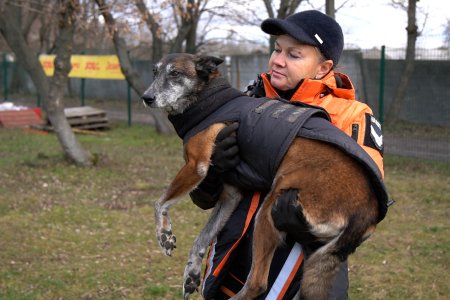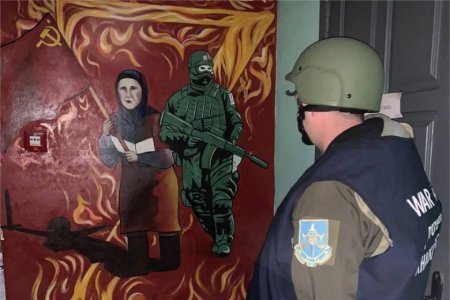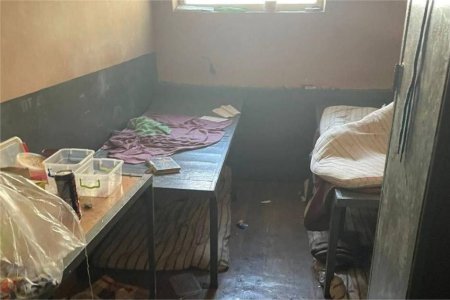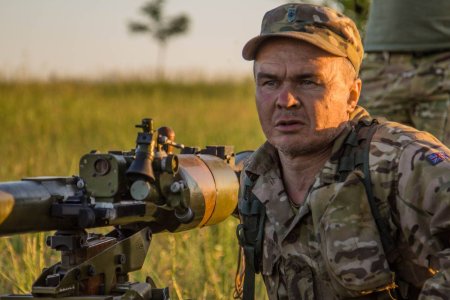Hanna Mushtukova and Olha Manukhina — representatives of the Initiative Group “Our Dearest”. The group unites 89 families from the Kyiv Region. For two and a half years, wives, parents, and children have been waiting for their relatives from captivity. Hanna — her husband. Olha — her husband and son, who turned 22 in captivity.
The Russians captured residents at the beginning of a full-scale invasion when they were rapidly moving through the Kyiv Region. Only from the Dymer community 42 people were kidnapped. The captors took even more civilians when they retreated. In July 2022, Investigation Info reported that Russian military personnel kidnapped Ukrainian civilians and used them as “human shields” to cover the Russian army and equipment during its retreat to Russia and Belarus in late March.

“They are all civilians! We do not have military professions. They are builders, cooks, drivers, managers. My husband did not even serve in the army,” — says Hanna Mushtukova. “My husband and son do not even have a military ID,” — adds Olha Manukhina.
The practice of kidnapping civilians used by Russians in the temporarily occupied territories is not new.
“Demonstrative reprisals against civilians to intimidate the rest of the population — this is the policy of the occupiers, which began 10 years ago,” — recalled Oleksandr Pavlichenko, executive director of the Ukrainian Helsinki Union on Human Rights, during a round table at the Ukrainian Crisis Media Center.
Read also the report Survivors of Hell: Testimonies of Victims of Illegal Detention Places in Donbas.
Every morning has been painfully similar to the previous one for women for over two years. A short greeting, communication with other initiative groups, planning events, and endless appeals to state and international bodies.
“It’s not the morning begins, but 24/24 without sleep. Of course, we hardly rest. It’s stress, it’s nervous breakdowns. It’s tears, it’s anticipation. As soon as we hear about the exchange... It’s not only us who experience this; it’s everyone whose relatives are in captivity,” — Hanna Mushtukova barely holds back her tears.
“We write to the Coordination Headquarters, we write to the Ministry of Reintegration, we appeal to our deputies. We appealed to Kirill Budanov. Who haven’t we appealed to? We had an action in Shevchenko Park. We had the opportunity to talk one-on-one with Mr. Lubinets. Every woman wants her loved one to return as soon as possible, and every mother wants her son to return as soon as possible. Our children want to see their fathers. One of our people even knelt before the authorized representative. They have access to the international level. We want them to feel our pain, our loss,” — says Olha Manukhyna.

Unfortunately, the desired result has not yet been achieved. Since the beginning of the full-scale invasion, only two community residents have been returned. One of them died at home after returning from captivity.
The women knew the location of all the prisoners, but they refused to name the source of the information. However, this knowledge does not facilitate communication. There is no possibility of full-fledged correspondence, no sending parcels — only short letters received once at the end of August 2022.
“Alive and well, not sick. The most dear four words,” says Hanna Mushtukova, the wife of a civilian Ukrainian prisoner.
International law prohibits the capture of civilians. Artur Dobroserdov, the authorized representative of the Ministry of Ukraine Internal Affairs for persons missing in action under special circumstances, noted: “A civilian hostage or a person deprived of personal liberty cannot be exchanged. According to international humanitarian law, there can be no civilian hostages. And if there are, they must be released."
But, of course, there is no talk of any release. Some prisoners are not held under actual personal data; they are deliberately transported from city to city to complicate the search. They transferred to the illegal status of people “opposing the SVO [Special Military Operation]”, held without status or fake trials held, incriminating them with war crimes.

Hanna Mushtukova says she saw photos of almost all the prisoners from their community on Russian Telegram channels. Some of the images were captioned as prisoners of war. In response to her appeal, she received information that civilians in the Kyiv region do not have any criminal proceedings against them from the Russian Federation.
“Our guys are not protected in any way. At least the military has some rights. Our state protects them somehow. But our guys are the same people. They are also citizens of Ukraine. Civilians are indeed subjected to the same torture that our military,” — Olha Manukhyna says.
People whose relatives were kidnapped by Russians often face a dilemma — to demand publicity or to remain silent so as not to harm their loved ones even more. This is not surprising because the cruelty of the Russians extends to both combatants and civilians. The Kharkiv Human Rights Protection Group wrote about a two-tier network of places of illegal detention and torture of civilians in the Kharkiv region.
“Since Olya and I are the group coordinators, we try to convey to people that they cannot give up. Maximum publicity is needed. Do not remain silent. Support each other. Wait together for our relatives to come out of captivity,” — says Anna Mushutukova.
“If we do not knock on all the doors, these doors will not open!” — Olha Manukhyna summarizes.

We remind you that the Kharkiv Human Rights Protection Group has created a hotline for missing or detained civilians and prisoners of war. Over the years of our work, we have managed to find more than 30% of the people we were informed about.
Interview: Andrii Didenko. Editing: Artem Nechayev. Article: Emiliia Prytkina



